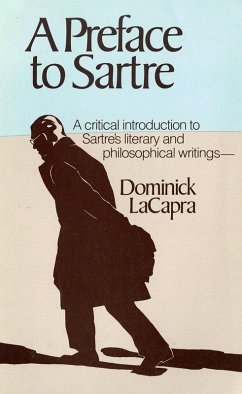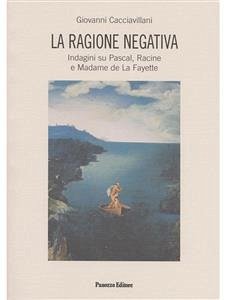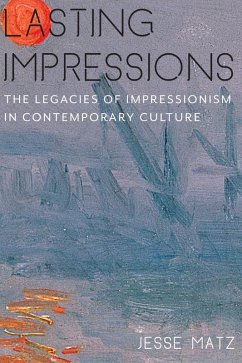
A Preface to Sartre (eBook, ePUB)
Versandkostenfrei!
Sofort per Download lieferbar
9,95 €
inkl. MwSt.
Weitere Ausgaben:

PAYBACK Punkte
5 °P sammeln!
Perhaps the leading Western intellectual of his time, Jean-Paul Sartre has written highly influential works in an awesomely diverse number of subject areas: philosophy, literature, biography, autobiography, and the theory of history. This concise and lucidly written book discusses Sartre's contributions in all of these fields. Making imaginative use of the insights of some of the most important contemporary French thinkers (notably Jacques Derrida), Dominick LaCapra seeks to bring about an active confrontation between Sartre and his critics in terms that transcend the opposition, so often disc...
Perhaps the leading Western intellectual of his time, Jean-Paul Sartre has written highly influential works in an awesomely diverse number of subject areas: philosophy, literature, biography, autobiography, and the theory of history. This concise and lucidly written book discusses Sartre's contributions in all of these fields. Making imaginative use of the insights of some of the most important contemporary French thinkers (notably Jacques Derrida), Dominick LaCapra seeks to bring about an active confrontation between Sartre and his critics in terms that transcend the opposition, so often discussed, between existentialism and structuralism. Referring wherever appropriate to important events in Sartre's life, he illuminates such difficult works as Being and Nothingness and the Critique of Dialectical Reason, and places Sartre in relation to the traditions that he has explicitly rejected. Professor LaCapra also offers close and sensitive interpretations of Nausea, of the autobiography, The Words, and of Sartre's biographical studies of Baudelaire, Genet, and Flaubert. "I envision intellectual history," writes LaCapra, "as a critical, informed, and stimulating conversation with the past through the medium of the texts of major thinkers. Who else in our recent past is a more fascinating interlocutor than Sartre?" A Preface to Sartre will be welcomed by philosophers, literary critics, and historians of modern Western culture. It is also an ideal book for the informed reader who seeks an understanding of Sartre's works and the issues they raise.
Dieser Download kann aus rechtlichen Gründen nur mit Rechnungsadresse in A, D ausgeliefert werden.













